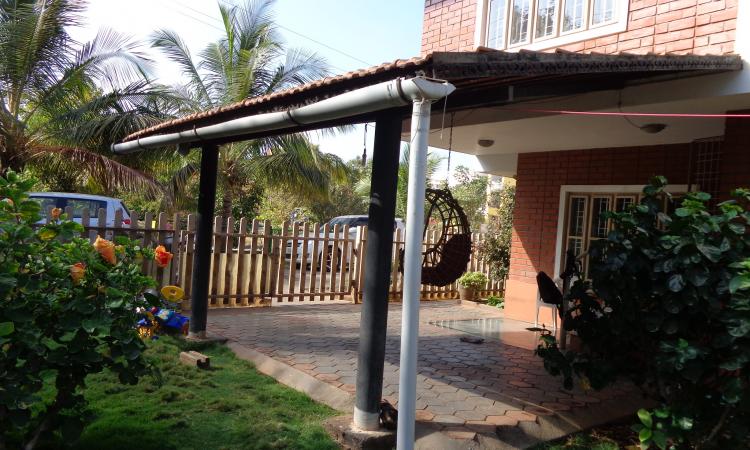
State government makes harvesting and using of rainwater a must in Bengaluru
Karnataka State Assembly passed the Bangalore Water Supply and Sewerage (Amendment) Bill requiring all plots measuring 60x40 and above in Bengaluru to install rainwater harvesting systems and to use the harvested water for purposes other than drinking, cooking and bathing. It is also necessary to install rainwater harvesting plants in the 30X40 plot, but using the harvested water is not a must in their case.
The amendment has been done to reduce dependency on Cauvery water or groundwater, contain the flow in stormwater drains and mitigate flooding in the city.
According to BWSSB data, 2,10,000 houses in the city need to install rainwater harvesting plants, and out of these 1,55,200 have installed them while the rest are paying the penalty for not doing so. (The Times of India)
Musi riverfront development project shelved due to recurring flooding in the city
Despite spending crores on the much-publicised project, Musi Rejuvenation and Beautification Project has been shelved. The decision was taken after river development works worth Rs 2 crore were washed away by recent incessant rains. The authorities have decided to proceed with the riverfront project after preparing a detailed project report (DPR).
The project was first conceived in 2006 but after being ignored for many years, the project took off in 2017, with the allocation of Rs 377.35 crore. There was relatively little funding spent on the project, and the key element remained on paper. (Deccan Chronicle)
ADB to aid Jharkhand improve water supply infrastructure
The Government of India has signed a $112 million loan with the Asian Development Bank (ADB) to develop water supply infrastructure and strengthen capacities of urban local bodies (ULBs) for improved service delivery in four towns—Ranchi, Hussainabad, Jhumri Telaiya and Medininagar, in the state. With the project, ADB will establish the state's first model for continuous water supply, as well as implement policy reforms to ensure sustainability.
A total of four water treatment plants will be built, with a combined capacity of 275 million liters of water per day, to provide safe drinking water that meets national standards. Along with this, the project will also establish 940 kilometers of water distribution network to provide continuous water supply to around 115,000 households. (India Infoline)
Mission for clean Krishna-Godavari Canals remains a dream
Despite being launched two years ago, the Andhra Pradesh Mission for Clean Krishna-Godavari Canal remains on paper. The aim of the mission was rejuvenation of canals and drains in the Krishna and Godavari Delta Systems by tackling water contamination and improving water quality.
Water in Krishna and Godavari canals has been classified as "C" quality, suggesting it can be used for drinking water following conventional treatment and disinfection. The mission required an initial funding of Rs 100 crore for preparing the DPR, but the government did not sanction any funds. Additionally, no funds were made available for the project for cleaning up major canals, which demanded Rs 406 crore, leaving the mission abandoned. (Deccan Chronicle)
Palwal's ambitious water sewerage project remains on paper
There is less than 30 percent completion of the AMRUT Yojana in Palwal, Haryana, worth Rs 200 crore, which was launched in 2018 and set to be completed by March 2020. Furthermore, only 13 percent of the sewerage work has been completed, and basic civil work such as digging up and laying the pipeline has not been completed. The deadline for the project has been extended to March 2022, but it seems that it is unlikely to be completed by December next year.
An official of the Municipal Council asserted that the agency involved in the project has been replaced, and that the major cause of the slow progress of the project is the pandemic. However, the work would be sped up to complete it as soon as possible. (The Tribune)
This is a roundup of important policy matters from September 5 - 21, 2021. Also, read news this fortnight.
/articles/harvesting-and-using-rainwater-must-bengaluru